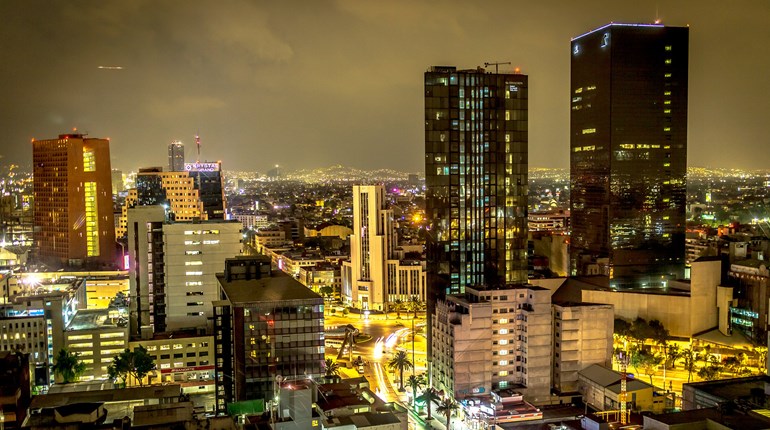
So much went wrong before, and during, the abominable attack on Florida’s Marjory Stoneman Douglas High School that it is tough to know where to start. Explicitly tipped off about the shooter and his intentions, the FBI failed to follow its own protocols, and the police failed to follow up at all. Once again, a deranged individual jabbed the authorities in the eyes with a series of red flags, and, once again, he was roundly ignored—possibly deliberately. Per Paul Sperry, of RealClearInvestigations, “Despite committing a string of arrestable offenses on campus before the Florida school shooting,” the killer “was able to escape the attention of law enforcement, pass a background check and purchase the weapon he used to slaughter three staff members and 14 fellow students because of Obama administration efforts to make school discipline more lenient.”
They are in practice describing millions of American citizens as subversives, and calling for their silencing at best, and their murder at worst.
The performance did not improve once the shooting started. Despite being on site for no reason other than to provide security to the students, Deputy Sheriff Scot Peterson simply declined to do his job when the terrible moment came. Instead, he stood outside without purpose while, just a few feet away, children were being murdered. When questioned as to why he abdicated his responsibilities, he bluntly lied about his conduct. Repeatedly, Peterson claimed that he had thought the shots were coming from outside the school—perhaps from the football field. This, as the radio recordings that his department subsequently released prove beyond doubt, was flatly untrue.
Aware of all this, the sheriff of Broward County, Scott Israel, refused to take responsibility. Worse still, he loudly blamed everyone other than himself, and then touted his “amazing” leadership on television. From top to bottom, this was a terrible tragedy of errors.
And so, of course, the blame has been thrown at ... the National Rifle Association.
For years, I have heard it said that illegal shootings are the only crimes that prompt otherwise sensible observers to cast wild accusations at the people who didn’t commit them. But I have never before seen such an egregious example of this phenomenon. The NRA—and indeed, anyone who strongly supports the Second Amendment to the U.S. Constitution—derives its power from the popularity of the civil right it exists to protect. That so many have attempted to transform the Association into a cartoon villain—conveniently divorced from all commonplace political context—has been both crassly opportunist and civically illiterate. But it has also been dangerous. When, as happened in the wake of Parkland, elected officials describe the NRA as a “terrorist organization,” child advocates shout “murderer” at those who disagree with them, and critics write “Kill the NRA” on roadside billboards, they are in practice describing millions of American citizens as subversives, and calling for their silencing at best, and their murder at worst. Why? Because those Americans have elected to come together as part of a voluntary political organization, the better to protect a core individual right. (It should be lost on nobody that so many of those using this sort of language either belong to political parties themselves, or are allied with other political advocacy groups, such as Planned Parenthood, the American Federation of Teachers, Everytown, Moms Demand Action and MoveOn.org.)
During times of national outrage, it is to be expected that tempers will flare and emotions will rage. Still, the press seems to hold a special contempt for law-abiding gun owners—a contempt that is not readily apparent in other heated circumstances. When a member of ms-13 kills an American citizen, we do not see anything approaching the full court press against the advocates of open borders that we have just seen leveled at defenders of the right to bear arms. Nor, in the aftermath of a terrorist attack, are the opponents of stricter government screening, or the representatives of cair, wheeled quickly onto television to be berated and cast as outré. Rather, we are told (correctly) that such incidents are rare. For some reason, Second Amendment advocates do not get the same courtesy.
Equally disgraceful are the presumptions informing this trend. It seems not to have crossed many minds that pro-Second Amendment Americans oppose further regulation of firearms because they do not believe that such regulations will work. Time and time again, it is simply assumed that the answers are simple, that they are right in front of us, and that everyone agrees that they are guaranteed to help—but that, for some inexplicable reason, many simply refuse to entertain them. This is nonsense. Indeed, underneath the attendant charge—that the opponents of stricter gun control have “blood on their hands”—sits a pernicious logical fallacy named “begging the question.” To “beg the question” is to advance an argument that assumes its conclusions in its premise. This practice is absolutely rife within the gun debate, even though there is a notable lack of evidence that the gun control measures most commonly proposed would do anything at all, or, for that matter, that the more draconian measures that bubble beneath the surface would be at all practical in a country such as the United States.
It is this tendency, of course, that explains why Second Amendment activists are constantly commanded to “think of the children,” to “grow a heart,” or to witness the grief of the bereaved, as if they are not already doing exactly that. For reasons that escape me, gun control advocates assume that their opponents quietly agree with their suggestions, but are either unaware of what anguish feels like or, worse, don’t care. This, naturally, is false. Just as those who opposed the Iraq War were not indifferent to the attacks on 9/11, gun owners who oppose banning “assault weapons” are not indifferent to what happened at Parkland. They merely disagree as to what should—and can—be done to prevent crime.
To understand this is to understand why CNN staged its disgraceful “town hall” so soon after the shooting in Florida. Ostensibly, CNN wanted a “debate.” In truth, CNN wanted to watch distressed families shout at politicians and defenders of the Second Amendment whom CNN believes are wrong on the issues. Why? So that the network could portray those people not as equal participants in our national polity, but as malicious culprits who deserved to be placed in the village stocks. The result was an event that did serious damage to our national discourse, while mawkishly claiming to be fostering it. It wasn’t a conversation; it was a bloodletting—the worst of democracy. As with our other national institutions, CNN has a responsibility to inject calm where there is anger, and to create a space in which reason and reflection can thrive. Since Parkland, they have done precisely the opposite, deliberately inflaming passions and setting one group of Americans up as the fall guys. Those Americans? Gun owners.
America will not long remain free if the members of its civil rights organizations are paraded on television, to be castigated by the mournful, every time an evil man abuses his liberty.
To say that this is unhealthy would be a disastrous understatement. America will not long remain free if the members of its civil rights organizations are paraded on television, to be castigated by the mournful, every time an evil man abuses his liberty. Nor will it last if the press can decide which advocacy groups are to be deemed controversial and facilitate the mob as it tries to drive them from polite society. Again, one must wonder why the Second Amendment is singled out. Privacy, when abused, permits terrorists to plan attacks in secret. Due process, from time to time, allows the dangerous to remain at large. And free speech—well, free speech has recently been blamed for pretty much anything that the speaker happens not to like: the mental health of large portions of the country, white supremacy, the 2016 election results, etc. There’s something else going on here.
All told, it is difficult to avoid the conclusion that the gun control movement has hit upon a new strategy of late. That strategy is to impose a social stigma on gun owners. This approach takes a number of different forms: It involves pressuring corporations and civic groups to cut even the most innocuous ties with pro-gun outfits; it involves pushing content providers to silence pro-NRA speech; it involves the widespread casting of gun owners as irrational throwbacks who are opposed to progress or change; it involves the casual use of extraordinary language of the sort that is typically reserved for traitors; it involves the cynical pretense that the Second Amendment is in some way “different” than the other provisions within the Bill of Rights, and that, in consequence, its advocates must be too; and, at the margins, it involves illegal behavior, such as DDOS attacks on gun advocates’ websites.
Fighting these smears will be tough, but it will not be impossible, for the notion that gun owners are a homogenous group, or that they in some way sit outside of the American body politic, is flatly false. False, too, is the idea that gun owners have not thought seriously about the issues surrounding the right to bear arms—specifically, about how best to curb its abuses. Indeed, it is precisely because they tend to have thought seriously about it that they oppose the knee-jerk proposals of those who have not. A 10-minute conversation with a supporter of the right to bear arms will demonstrate this, which is presumably why the likes of Katie Couric have had to resort to flagrantly dishonest editing in order to make them look bad.
It was telling that Sheriff Israel was so keen to get on television and to talk about somebody else. Indeed, looking back, he should be regarded as an early adopter of the new approach. When he walked onto that stage and began to rile up that crowd, he already knew how poorly his department had performed. He knew that his deputy had shamed his badge. He knew that the shooter had slipped from his office’s grasp. And he knew that these facts would come out. So he did what all charlatans do: He raised his voice and attacked someone else, and—when called on his dishonesty—he retreated into platitudes.
Since the news of the attack broke on Valentine’s Day, this has been the pattern. If allowed to, it will swiftly become the norm. We must ensure that does not happen. Rarely in the modern era have so many good people been so viciously blamed for a crime they didn’t commit. Rarely has it been more urgent that they fight back.
Charles C.W. Cooke is the editor of National Review Online and a frequent America’s 1st Freedom contributor.

































